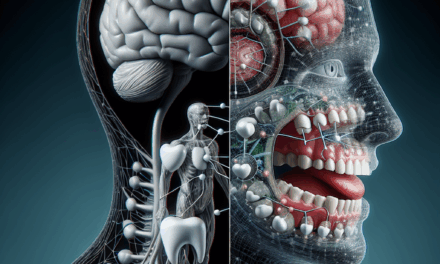National Taiwan University Hospital Embraces Multimodal Approach for Major AI Development
In recent years, the integration of artificial intelligence (AI) into healthcare has transformed the landscape of medical practice, research, and patient care. National Taiwan University Hospital (NTUH), one of the leading medical institutions in Taiwan, has taken significant strides in adopting a multimodal approach to AI development. This article explores the various dimensions of NTUH’s AI initiatives, focusing on five key subtopics: the hospital’s AI strategy, the role of data in AI development, applications of AI in clinical settings, challenges and ethical considerations, and future directions for AI in healthcare.
AI Strategy at National Taiwan University Hospital
NTUH’s commitment to AI development is rooted in a comprehensive strategy that aligns with its mission to provide high-quality healthcare while advancing medical research and education. The hospital has established a dedicated AI research center that collaborates with various departments, including radiology, pathology, and internal medicine, to explore innovative applications of AI technologies.
The AI strategy at NTUH can be summarized through the following key components:
- Interdisciplinary Collaboration: NTUH fosters collaboration among healthcare professionals, data scientists, and engineers to develop AI solutions tailored to clinical needs. This interdisciplinary approach ensures that AI applications are grounded in real-world medical challenges.
- Investment in Infrastructure: The hospital has invested in advanced computing infrastructure, including high-performance computing clusters and cloud-based platforms, to support AI research and development. This infrastructure enables the processing of large datasets essential for training AI models.
- Focus on Education and Training: NTUH emphasizes the importance of educating healthcare professionals about AI technologies. The hospital offers training programs and workshops to enhance the skills of medical staff in utilizing AI tools effectively.
- Partnerships with Academia and Industry: NTUH collaborates with universities and technology companies to leverage external expertise and resources. These partnerships facilitate knowledge exchange and accelerate the development of AI applications.
- Patient-Centric Approach: The hospital’s AI initiatives prioritize patient outcomes and safety. AI solutions are designed to enhance clinical decision-making, improve diagnostic accuracy, and streamline patient care processes.
By implementing this multifaceted strategy, NTUH aims to position itself as a leader in AI-driven healthcare innovation, ultimately benefiting patients and the broader medical community.
The Role of Data in AI Development
Data is the cornerstone of AI development, and NTUH recognizes the critical importance of high-quality, diverse datasets in training effective AI models. The hospital has established robust data governance frameworks to ensure the ethical collection, storage, and utilization of patient data.
Key aspects of NTUH’s data strategy include:
- Data Collection: NTUH collects a wide range of data from various sources, including electronic health records (EHRs), imaging studies, laboratory results, and patient-reported outcomes. This comprehensive data collection enables the development of AI models that can address diverse clinical scenarios.
- Data Quality and Standardization: Ensuring data quality is paramount for effective AI training. NTUH employs rigorous data cleaning and standardization processes to eliminate inconsistencies and inaccuracies in the datasets.
- Data Privacy and Security: The hospital adheres to strict data privacy regulations to protect patient information. NTUH implements advanced security measures, including encryption and access controls, to safeguard sensitive data.
- Data Sharing and Collaboration: NTUH actively participates in data-sharing initiatives with other healthcare institutions and research organizations. This collaborative approach enhances the diversity of datasets available for AI training, leading to more robust models.
- Real-Time Data Utilization: The hospital leverages real-time data analytics to inform clinical decision-making. AI algorithms can analyze incoming patient data in real-time, providing healthcare professionals with actionable insights at the point of care.
By prioritizing data quality, security, and collaboration, NTUH is laying the groundwork for successful AI development that can significantly improve patient care and outcomes.
Applications of AI in Clinical Settings
NTUH has made significant progress in implementing AI applications across various clinical settings. These applications range from diagnostic support to treatment planning and patient monitoring, showcasing the versatility of AI in enhancing healthcare delivery.
Some notable applications of AI at NTUH include:
- Radiology: AI algorithms are employed to assist radiologists in interpreting medical images. For instance, deep learning models have been developed to detect abnormalities in chest X-rays and CT scans, improving diagnostic accuracy and reducing interpretation time.
- Pathology: In the field of pathology, AI is used to analyze histopathological images for cancer detection. NTUH has implemented AI systems that can identify cancerous cells with high sensitivity and specificity, aiding pathologists in making more accurate diagnoses.
- Predictive Analytics: NTUH utilizes AI-driven predictive analytics to identify patients at risk of developing complications. By analyzing historical patient data, AI models can forecast potential adverse events, allowing healthcare providers to intervene proactively.
- Telemedicine: The COVID-19 pandemic accelerated the adoption of telemedicine, and NTUH has integrated AI into its telehealth services. AI chatbots are used to triage patients, providing preliminary assessments and directing them to appropriate care pathways.
- Personalized Medicine: AI is instrumental in advancing personalized medicine at NTUH. By analyzing genetic and clinical data, AI algorithms can help tailor treatment plans to individual patients, optimizing therapeutic outcomes.
These applications not only enhance the efficiency of clinical workflows but also improve patient outcomes by enabling timely and accurate diagnoses and interventions.
Challenges and Ethical Considerations
While the potential of AI in healthcare is immense, NTUH faces several challenges and ethical considerations in its pursuit of AI development. Addressing these issues is crucial to ensuring the responsible and effective use of AI technologies in clinical practice.
Key challenges and ethical considerations include:
- Data Bias: AI models are susceptible to biases present in training data. If the datasets used to train AI algorithms are not representative of the diverse patient population, the resulting models may produce biased outcomes. NTUH is actively working to mitigate this risk by ensuring diverse data representation.
- Transparency and Explainability: Many AI algorithms, particularly deep learning models, operate as “black boxes,” making it challenging for healthcare professionals to understand their decision-making processes. NTUH emphasizes the importance of developing explainable AI systems that provide insights into how decisions are made.
- Regulatory Compliance: The integration of AI into clinical practice raises regulatory challenges. NTUH is committed to adhering to local and international regulations governing the use of AI in healthcare, ensuring that all AI applications meet safety and efficacy standards.
- Patient Consent: The use of patient data for AI development necessitates informed consent. NTUH prioritizes transparency in its data collection practices, ensuring that patients are aware of how their data will be used and have the option to opt-out if desired.
- Impact on Healthcare Workforce: The introduction of AI technologies may lead to concerns about job displacement among healthcare professionals. NTUH is focused on upskilling its workforce to work alongside AI systems, emphasizing that AI is a tool to augment human capabilities rather than replace them.
By proactively addressing these challenges and ethical considerations, NTUH aims to foster a responsible and sustainable approach to AI development in healthcare.
Future Directions for AI in Healthcare
The future of AI in healthcare is promising, and NTUH is poised to play a pivotal role in shaping this landscape. As technology continues to evolve, several key trends and directions are emerging in the field of AI development.
Future directions for AI at NTUH include:
- Integration of AI with Genomics: The convergence of AI and genomics holds great potential for personalized medicine. NTUH plans to explore AI applications that analyze genomic data to identify genetic predispositions to diseases and tailor treatment strategies accordingly.
- Expansion of AI in Chronic Disease Management: Chronic diseases pose significant challenges to healthcare systems. NTUH aims to develop AI solutions that facilitate remote monitoring and management of chronic conditions, empowering patients to take an active role in their health.
- AI-Driven Clinical Trials: AI can streamline the clinical trial process by identifying suitable candidates and predicting outcomes. NTUH is exploring the use of AI to enhance the efficiency of clinical research, ultimately accelerating the development of new therapies.
- Enhanced Patient Engagement: AI technologies can improve patient engagement through personalized communication and education. NTUH plans to leverage AI chatbots and virtual assistants to provide patients with tailored information and support throughout their healthcare journey.
- Global Collaboration in AI Research: NTUH recognizes the importance of global collaboration in advancing AI research. The hospital aims to participate in international initiatives and partnerships to share knowledge, resources, and best practices in AI development.
By embracing these future directions, NTUH is committed to harnessing the full potential of AI to improve healthcare delivery and patient outcomes.
Conclusion
National Taiwan University Hospital’s multimodal approach to AI development represents a significant advancement in the integration of technology into healthcare. Through its comprehensive strategy, robust data governance, diverse clinical applications, and proactive addressing of challenges, NTUH is paving the way for a future where AI plays a central role in enhancing patient care.
The hospital’s commitment to interdisciplinary collaboration, education, and ethical considerations ensures that AI technologies are developed responsibly and effectively. As NTUH continues to explore innovative applications of AI, it stands as a model for other healthcare institutions seeking to leverage technology for improved patient outcomes.
In summary, the journey of NTUH in embracing AI is not just about technological advancement; it is about transforming healthcare delivery, enhancing patient experiences, and ultimately saving lives. The future of AI in healthcare is bright, and NTUH is at the forefront of this exciting evolution.





